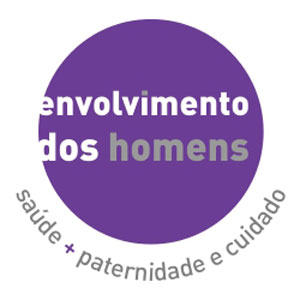
Brazil’s “Community of Practice” platform, in partnership with Equimundo and with the Ministry of Health’s National Coordinating Body on Men’s Health, launched the online course “Engaging Men: Health, Parenting, and Care” in November 2015. The course, which aims to explore issues related to fatherhood with a focus on healthcare, has reached more than 700 participants to date. The Community of Practice is a virtual space that facilitates knowledge exchange and capacity building for professionals from Brazil’s primary care health system.
The objectives of the course are to prevent violence against women and to promote both maternal and newborn health and men’s own health outcomes by engaging male partners in pregnancy, birth, and childcare. The free, 60-hour course is open to the general public, with a specific focus on reaching health professionals. (Participants can sign up for the course after creating an account on the Community of Practice website.)
The project aims to reach 5,000 professionals from Brazil’s primary care health system. To do so, in 2016 the Ministry of Health’s National Coordinating Body on Men’s Health will work with state health units throughout Brazil to promote the course with its professionals. The aim is to improve primary healthcare services, promote safe and friendly spaces for men to participate in and support maternal and newborn health, and bring men into the health system to better care for their own health.
The initiative is funded by the USAID Development Innovation Ventures (DIV) and forms part of MenCare+, a three-year, four-country collaboration between Equimundo and Rutgers, created to engage men ages 15-35 as partners in maternal, newborn, and child health and in sexual and reproductive health and rights.
The importance of involving men in health and care
Studies show that fathers’ involvement in caregiving, from the prenatal period onward, can bring lasting benefits for women, children, and men themselves. The involvement of fathers before, during, and after the birth of a child has been shown to have positive effects on maternal health behaviors, women’s use of maternal and newborn health services, and fathers’ longer-term support and involvement in the lives of their children. Men’s equal participation in childcare promotes women’s empowerment and child development.
To learn more, see MenCare’s first ever State of the World’s Fathers report.
